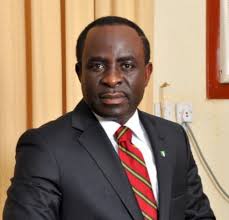A professor of law, Adebambo Adewopo (SAN), has said the draft National Intellectual Property Policy and Strategy (NIPPS) and the institutionalisation of the creative economy as a government ministry, are significant in the milestones of the Nigerian creative industries.
Adewopo, who is a professor of Intellectual Property Law and former Director General of the Nigerian Copyright Commission (NCC), spoke against the background of World IP Day 2024 marked on the 26th of April every year.
The theme for this year is “IP and SDGs: Building Our Common Future with Innovation and Creativity”, which shines a light on the central importance of innovation, creativity and IP to achieving the 17 SDGS.
He said the singular and combined impacts of policy, legal and institutional reforms are the impulses that are further advancing the dynamics of aligning IP and SDGs (sustainable development goals) in the country.
- Iran-Israel war: Shehu Sani urges warring parties to sheathe swords
- Complete existing projects before considering coastal highway — Obi
The legacy of World IP Day, he said, has never ceased to impress on global consciousness and a profound theme that always affirms the benevolent gifts of creativity and innovation to mankind.
“Since its inception in 2000 when WIPO first designated April 26 as World IP Day to raise awareness about the significance of intellectual property (IP), each theme has faithfully defined the timeless role of creators, innovators, and inventors in the flourishing of society,” he said.
He said this year’s theme envisioned as “our common future,” echoes the complex dynamics of IP and SDGs in a world that is faced with multiple crises as the 2030 deadline to achieving the UN sustainable development goals draws closer. The theme reminds us of the collective but unliquidated burden of peace and prosperity for people and the planet, and the role of innovation, creativity, and IP in the liquidation of that burden.
He said the World Intellectual Property Organisation (WIPO)’s theme strikes at the heart of the fragile sustainable development ecosystem and the central role of IP as a strategic tool in facilitating the SDGs’ realisation for the benefit of everyone without leaving anyone behind.
In the intricacies of creativity and innovation, the theme finds cogency and currency in the tensions of the fundamental objectives and narratives of IP policies and SDGs weaved into the trajectories of our common future.

 Join Daily Trust WhatsApp Community For Quick Access To News and Happenings Around You.
Join Daily Trust WhatsApp Community For Quick Access To News and Happenings Around You.


